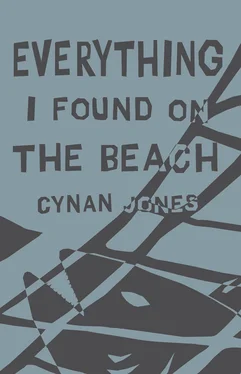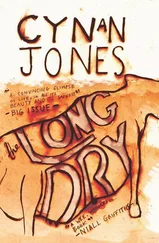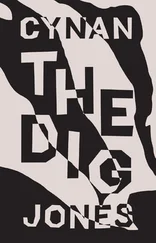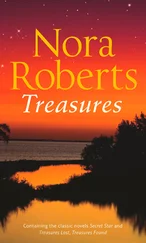Hold looked up at him. “Getting up a little.” The man was on the quay wrapping the rope around the iron cleat.
“Tomorrow?” said the man.
He stood up from the rope. There were a few people stopped on the quay looking down into the boat at the coiled lines and the bounty of fish and at the spider crabs and the one big lobster.
The man was looking down into the boat at the boxes of fish. They were so fresh they hadn’t started to lose their color yet and in the light the fish were very fine things, and there was something somehow religious about them.
“It’s your boat,” Hold said up.
“You’re in it,” said the man.
Hold looked out at the sea rising slightly in a swell. “I’m happy to take her out tomorrow.”
They’d loaded the fish up onto the quay and the man had gone into the hotel there and the restaurant manager had come out with him and chosen the fish he wanted. It was a public act and it was a very good advertisement for the hotel to the few early tourists. In the summer, the tourists were bolder and would gather like gulls and they would sell direct to them, setting the scales up on the quay wall.
The manager wanted the fish and the lobster and gave the man cash for them and the man wrote it down in a duplicate book and gave a copy back to the manager. Then he counted off the percentage of the money and added the fee to it and wrote it down and gave it to Hold.
“I took some fillets,” Hold said. He was very clear like that.
“Fine,” said the man.
“Drink, guys?” the hotel manager said.
They both declined and the restaurant manager said to Hold, “Could you get some rabbits for me? Dozen?” and Hold said he could. And the manager said, “For Friday.”
“Okay,” said Hold. “I’ll go out tonight. I’ll bring some in the morning or the morning after.” He knew it was a full moon and not a good night for it but figured that over two nights even with bad shooting he could get a dozen.
Every now and then he rubbed the nub of his thumb where something he’d got under his skin was swelling into a small sore. “It’s a bit of fish bone,” he thought. Or perhaps something off the boat. He examined it casually and scratched at it with his other thumbnail but the skin didn’t lift.
“Do you want the crab?” asked the man.
The restaurant manager looked at them and looked back at the hotel doubtfully and said, “They’re fiddly as hell…” And Hold said, “They’re in early. Really early this year.”
“I’ll take them,” said the manager. Their meat was very sweet and of great flavor, but it was work to get the meat out in terms of time. “I’ll cook them up,” the manager said.
“You can have them,” said the man, and looked at Hold as if to check it with him. Hold shrugged. He flicked with his nail at the little sore again, trying to see what it was that was under his skin. He was perturbed at the crab being in so early. Usually it was from May they came in any numbers.
Hold put the tub of spider crabs on the quay wall and they loaded the rest of the fish into the 4 x 4 and poured over them the crushed ice that was softening in a plastic sack in the back of the vehicle. Then the man drove off with them. People were staring into the big tub of spider crabs. The crabs looked very alien there on the quay wall.
Hold unwound the rope-line and cast it down into the boat and went down the ladder, kicking off the heavy boat from the wall, and the restaurant manager came out and took the crabs to cook.
Big mullet were coming in on the tide and grazing the harbor wall and people were remarking on it.
Hold headed the boat over to her mooring and tied her up and took the fillets he had cut and his water bottle and rowed the tender over to the slipway and got out. There were mullet pecking at the slipway. Around all the motors of the boats there were little rainbowed pools of oil like liquid peacock feathers lain on the water. Hold could still taste the fish in his mouth. It was a hell of a fish this way. It made it a shame to cook it.

The waste was difficult to accept. He thought woefully of how his grandparents would be horrified by the wasteful policies of the place, of the perfectly good meat that was thrown away here.
“This is a comfortable culture,” Grzegorz thought. “It is a comfortable culture and a culture that doesn’t have time for food that takes hours to prepare. People here can choose not to eat meat. They are actually comfortable enough to be able to say ‘I won’t eat meat.’”
He thought of the feet, the cow’s lips, all the slow-cooked things of his upbringing, with the better cuts being sold. He saw all these unwanted organs thrown into bins and dye tipped over them, things perfectly good to eat.
“It is not what we do in this country,” he told himself. “There is enough here.” He thought bitterly of the useless farm back home, the place he had always imagined himself staying. Felt the dagger of his naivety in that. “We have to move on. Get more sophisticated.”
Most of the farms round here were small. Not by Polish standards, but they were small and they sold through organizations that had contracts with the big supermarkets. For most people, there was no getting away from that if they wanted to make the farm work.
When a supermarket put in a big order for something they wanted to sell on offer, they got the animals they needed in and took just those parts and threw the rest of the animal away. The supermarkets, for example, would want lamb chops, so they’d extract the chops and send them on down to the packing line and the rest of the sheep would be tossed, and the dye thrown on it. Then the chops would be driven for hundreds of miles around the country.
The suppliers and the farmers would have to take the financial hit on the offer or risk losing the supermarket contract, and if any of the product was left unsold when the offer ran out, the supplier had to buy it back.
Grzegorz thought of the animals butchered in the old kitchen, the pig hanging from its sinews by the big iron hooks and his grandfather’s saw cutting down through the ribs, the collected pudding of the blood, the rich, powerful smell of the fresh offal on the wood-fired stove. “This gratefulness to an animal,” he thought, “is what’s gone here. There is a sorrow for it, as there always is, but it is without gratefulness and eventually you just go numb to it. It’s the way you have to feel about crowds of people, about strangers. You can’t care for them. You can’t let yourself. There’s too many of them.”
Much of the meat that should have been destroyed went missing. You couldn’t work in that wastefulness and go home and see people eating poorly, counting their pennies. That was one thing about the house, despite the lack of ready money — they ate well. At least, they ate richly from the cuts the men could bring. Last week a whole truckload of chops had come back. They’d gone all the way through, through the packing lines and onto the truck and the hundreds of miles to the supermarket depot and they were rejected because the rind of fat was half a centimeter too thick. They had to be destroyed. The supervisor came out to oversee that one and they had to watch the whole lot go to waste. It was perfectly good meat.
He thought tiredly of the dressing down again. The bullying, as it was, by his line manager. “Maybe I attract it,” he thought. “Maybe I attract that kind of thing. They think I’m weak because I’m quiet. I’m not a city boy like them. I never learned to be aggressive like that.”
He looked up at his wife. She was shushing the baby in this kind of worn-out way, the other people in the kitchen moving round her. He was losing hope, he could feel that. He could feel the energy that came with that first, excited belief disappearing. And she seemed to be disappearing with it.
Читать дальше













